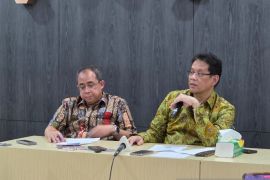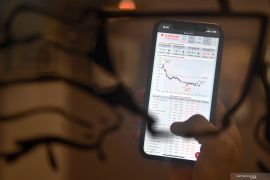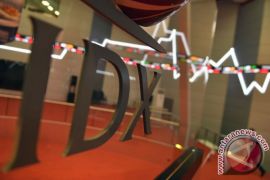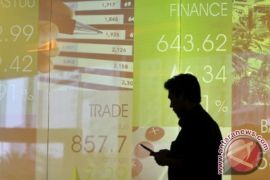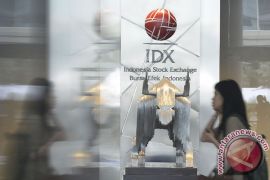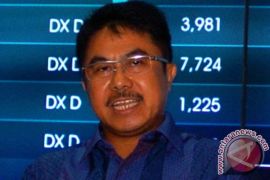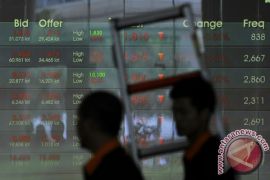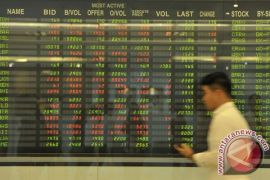The exchanges president director, Tito Sulistion, noted in a press release received here on Monday that the positive performance of the IHSG index was caused by the accumulation of purchases by investors of shares, with high capitalization, that had a significant effect on the IHSG coefficient.
"At present, some 20 big companies are listed on the BEI that control 60 percent of IHSGs market capitalization," he pointed out.
He explained that the hike in the IHSG had led the Indonesian share markets capitalization to reach Rp5,094.26 trillion, or an increase of 4.54 percent, compared to Rp4,872.70 trillion recorded at the end of 2015.
The total market capitalization is the cost of all shares of companies listed on the BEI.
Of the several stock exchanges in the world, with the exception of Thailand, only 1.31 percent were able to record positive growth this year.
Among the stock exchange indexes that have recorded negative performance are the Bursa Malaysia Index, Kospi Index of South Korea, the Philippines PSE Index, Britains FTSE 100, Indias S&P Sensex Index, US Dow Jones Index, Singapores Straight Times Index, Japans Nikkei 225, Hong Kongs Hang Seng Index, and Shanghai Index.
Sulistio revealed his plan to continue to adopt initiatives to attract more investors to invest in the Indonesian capital market.
He said the initiatives to be adopted by the BEI would be focused on four key areas encompassing BEIs development by increasing the number of issuers, strengthening the brokers, increasing the number of investors, and improving BEIs reputation.
"One of the initiatives that has been realized by the BEI this week is the reactivation of futures trading and the LQ-45 Futures Option on Monday (Feb. 1)," he added.(*)
Editor: Heru Purwanto
Copyright © ANTARA 2016
